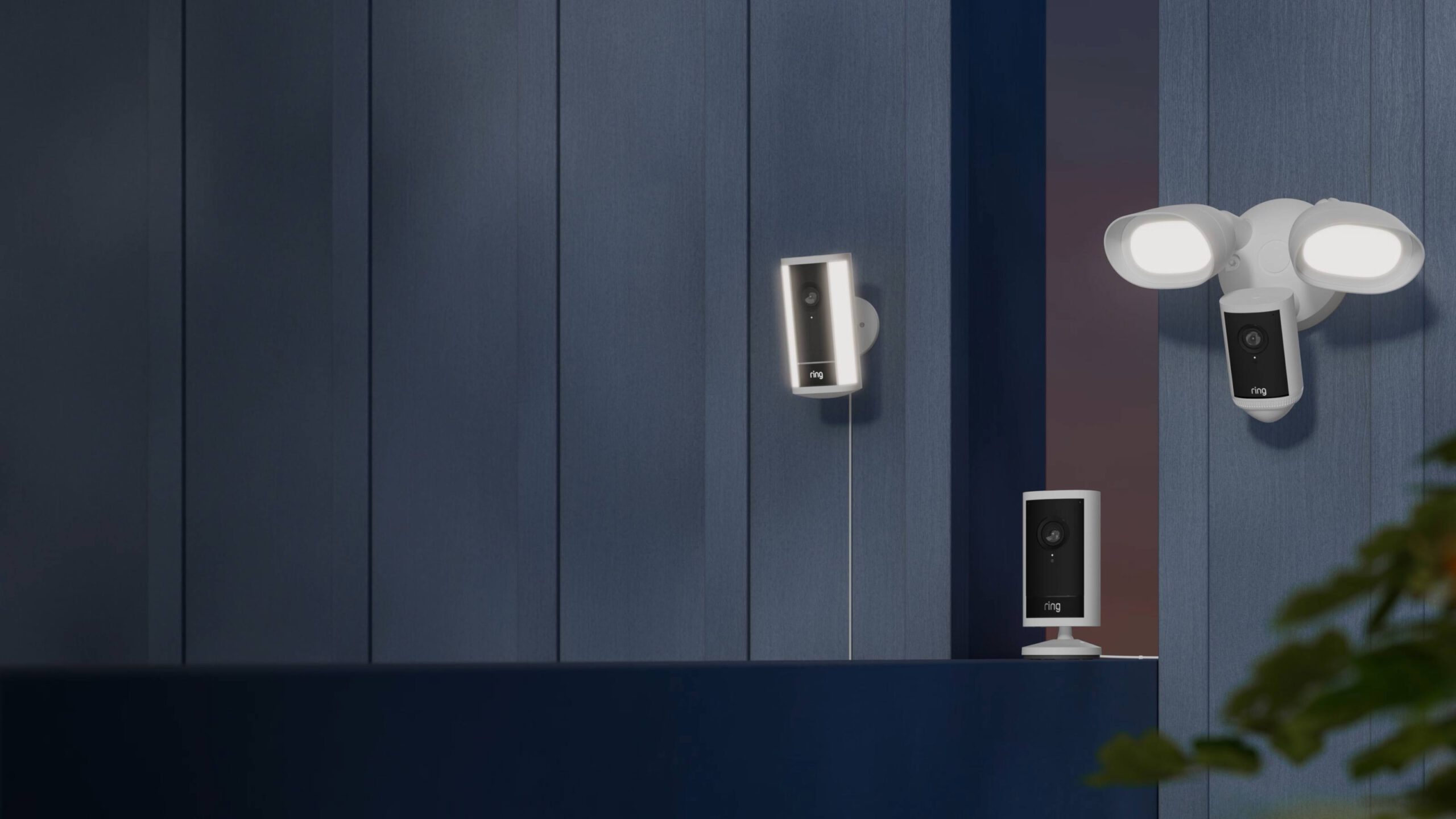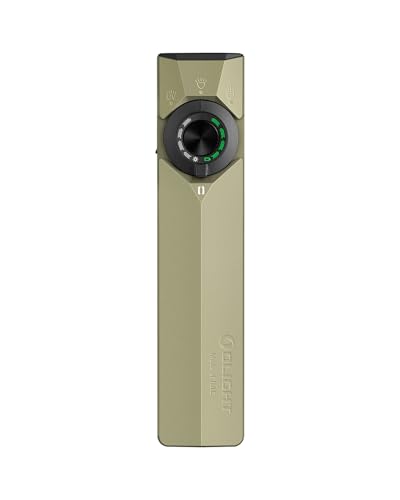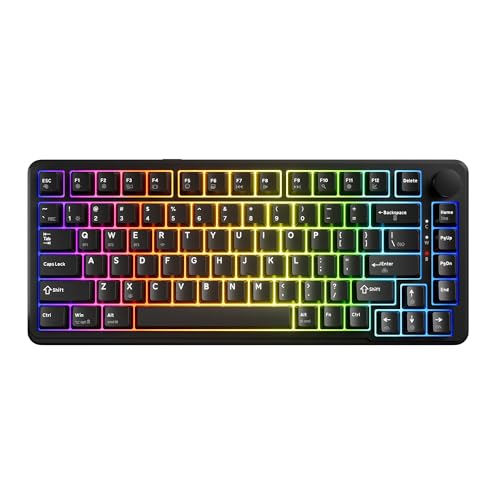Designer rawkout1337 claims the CyberDeck 1.1.0 transforms maker-friendly components into a portable computer that supposedly channels retro sci-fi aesthetics. Built around a Raspberry Pi 4, this briefcase-style device features a 7-inch touchscreen, a mechanical keyboard, and a cream-colored metal frame. The project appears aimed at DIY enthusiasts who prefer their tech to look like movie props rather than sleek consumer laptops.
Its blend of style and utility makes the CyberDeck 1.1.0 a standout among productivity-boosting gadgets, redefining how we work and play.
Port Selection Prioritizes Function Over Form
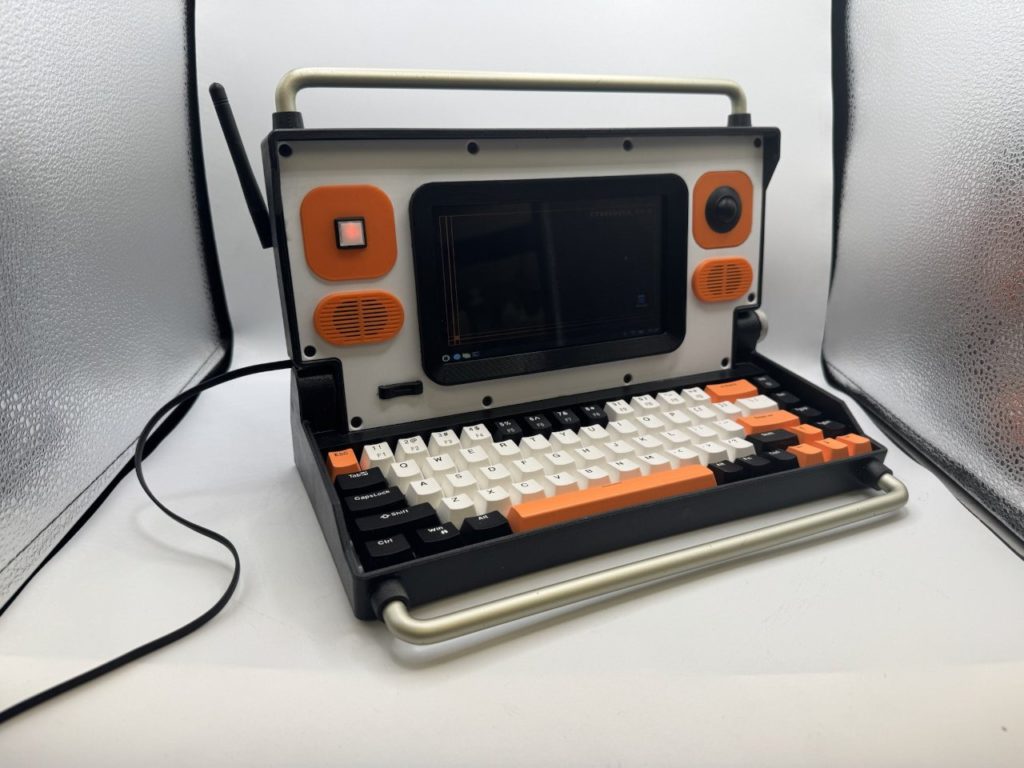
The side connectivity panel delivers two USB 3.0 ports and a USB-C power input for external devices. Most portable builds sacrifice full-size ports to save space, but field debugging requires dongles and storage drives. The WiFi antenna extends from the corner for improved signal reception. Power demands from the Pi 4 mean you need external batteries or constant wall power since internal storage remains absent.
Trackball Interface Demands New Muscle Memory
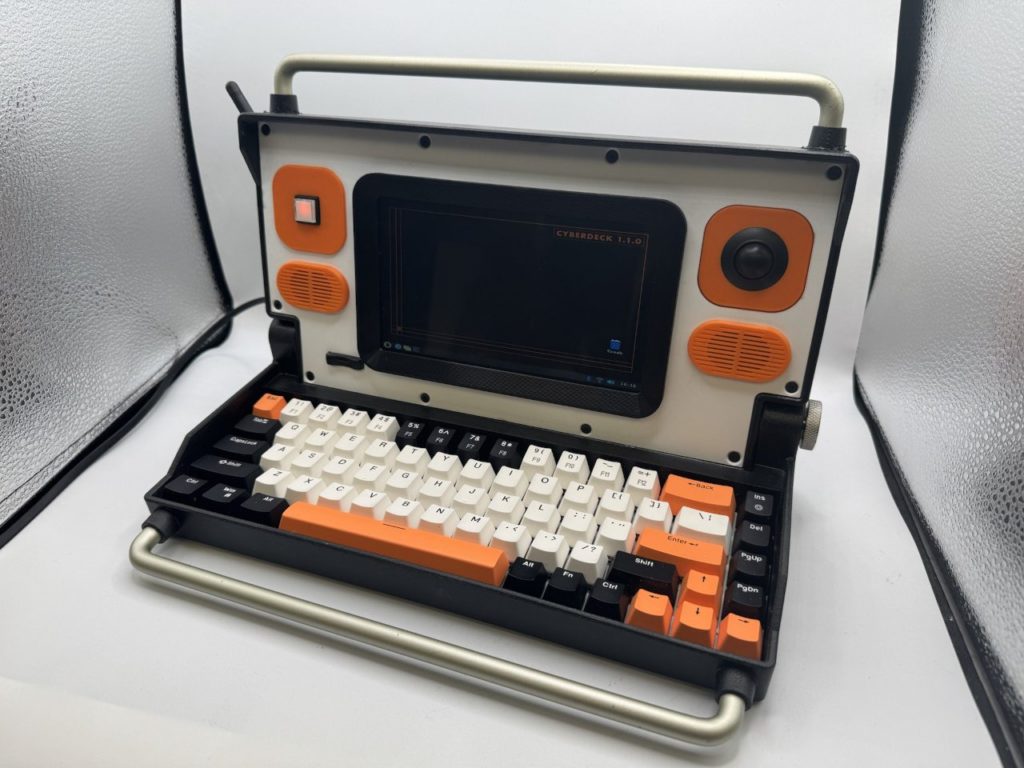
The orange trackball sits above the display instead of below the keyboard like traditional laptops. Your hand grips the screen lid to control cursor movement while three mouse buttons hide along the back edge. This setup forces completely different interaction patterns than standard touchpads, like trying to use Instagram stories with a BlackBerry trackball. Trackball control offers precise cursor movement, though the unconventional placement requires learning new interaction patterns.
Industrial Build Quality Survives Real Use
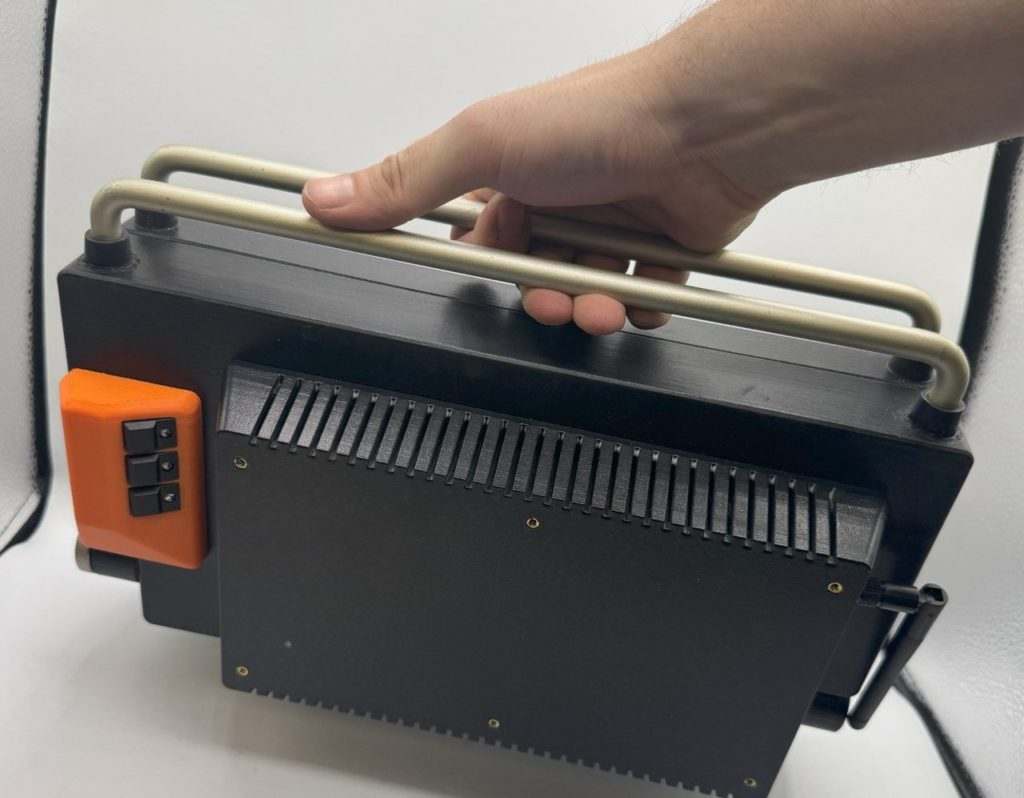
The dual metal handles double as typing wrist rests when opened flat. Main chassis reportedly uses durable 3D-printed construction while orange accent pieces provide visual contrast. Closed dimensions match standard briefcase proportions for portability. Weight distribution stays manageable thanks to the Pi 4’s modest hardware footprint compared to traditional laptop internals loaded with batteries and cooling systems.
Assembly Process Requires Technical Experience
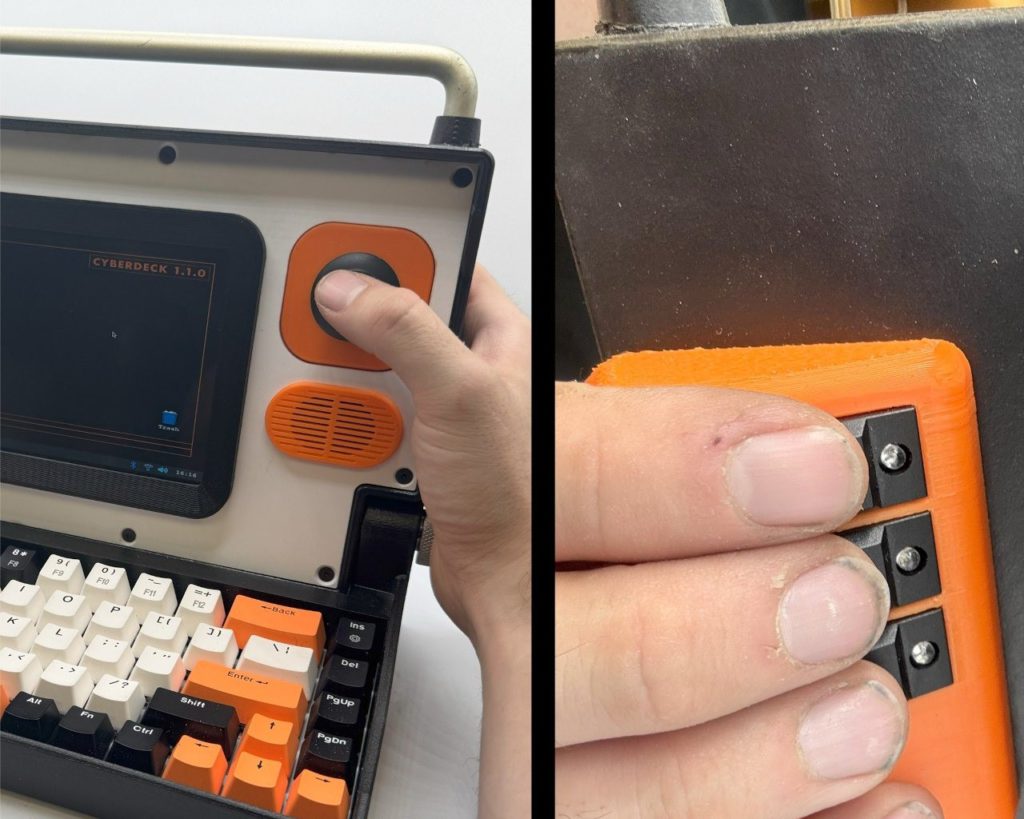
The 68-key mechanical keyboard connects through custom wiring rather than plug-and-play USB connections. Builders need soldering skills for the microSD extension port and status LED integrations. The front-facing microSD slot enables OS swapping without case disassembly. Most setups run standard Raspberry Pi OS, though cyberdeck builders often prefer Kali Linux for authentic hacker aesthetics.
Cost Analysis Challenges Traditional Value Metrics
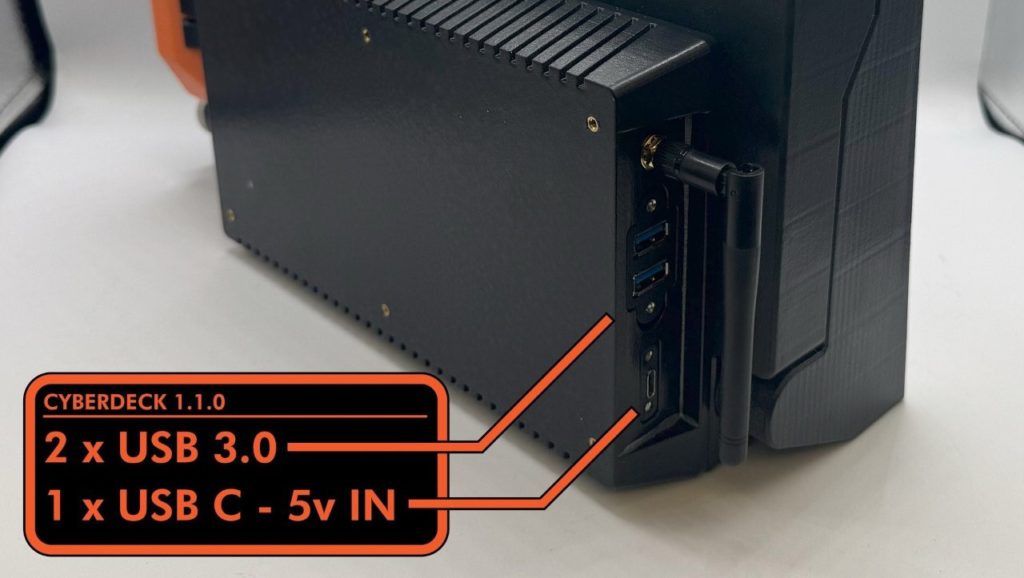
According to maker community estimates, component sourcing runs $400-600 depending on keyboard quality and build preferences. Commercial laptops deliver superior computing power at similar price points. The 1.1.0’s value proposition centers on unique design expression and DIY satisfaction rather than performance benchmarks. Makers prioritizing distinctive aesthetics over mainstream functionality discover better value here than spreadsheet comparisons suggest.









